close
Dear Creators, we are proud to announce an amazing affiliate program for you to earn some serious and continual cash. Read about our affiliate progarm here.
Caros criadores, temos o orgulho de anunciar um incrível programa de afiliados para vocês ganharem muito dinheiro de forma contínua. Leia sobre nosso programa de afiliados aqui.
No Titty for The Kitty - A Cuddle For The Kat
31 Views
• 01/19/22
3
0
Embed
Download





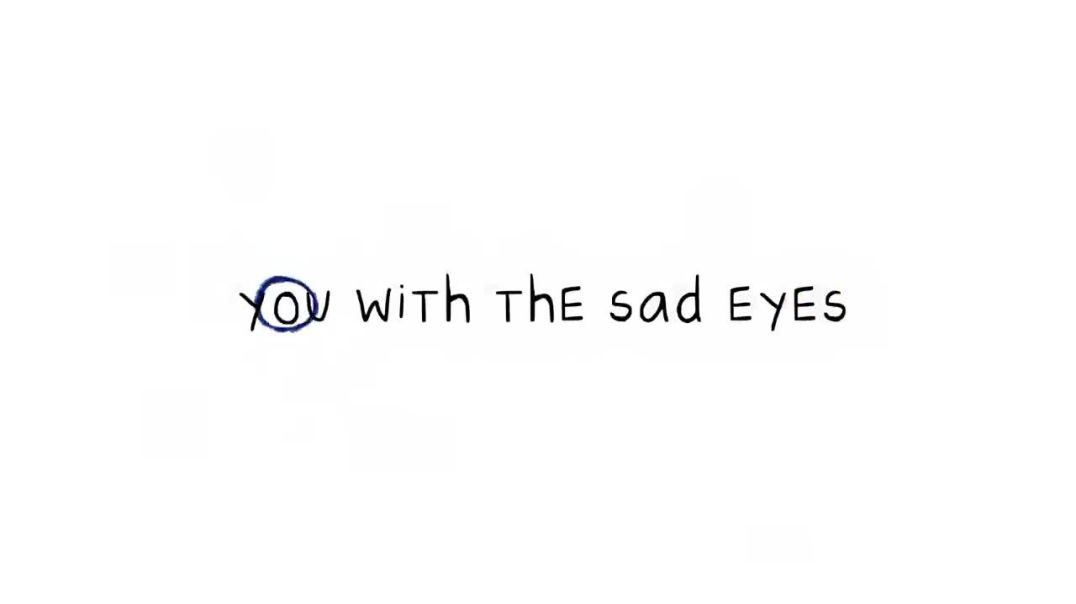
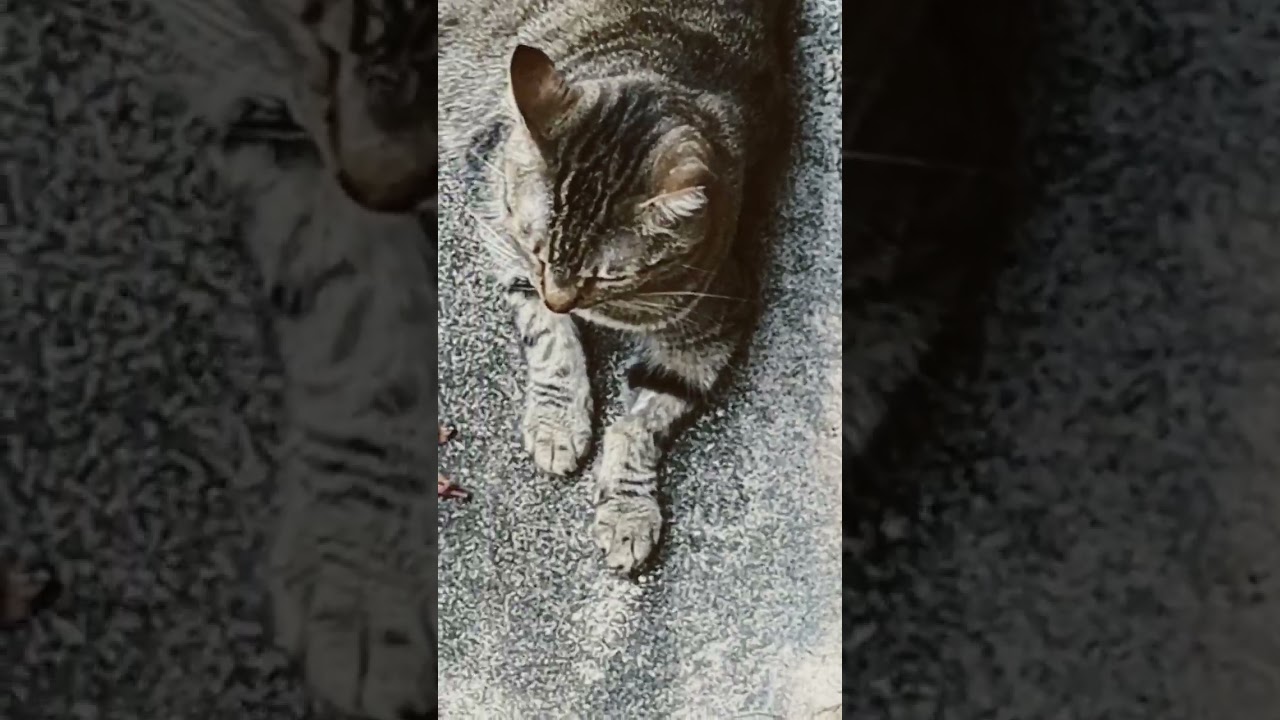






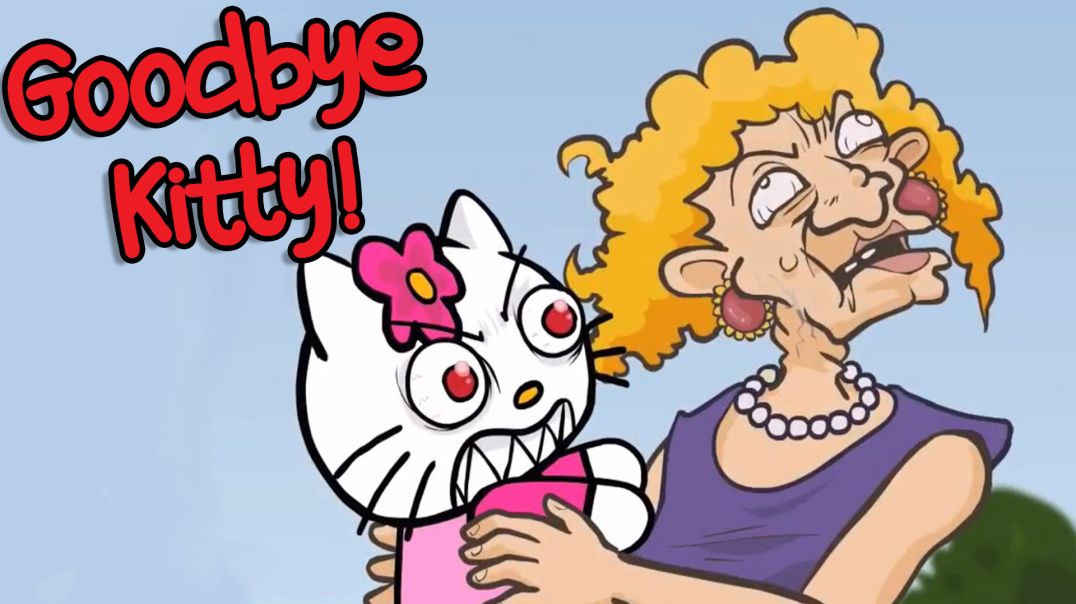
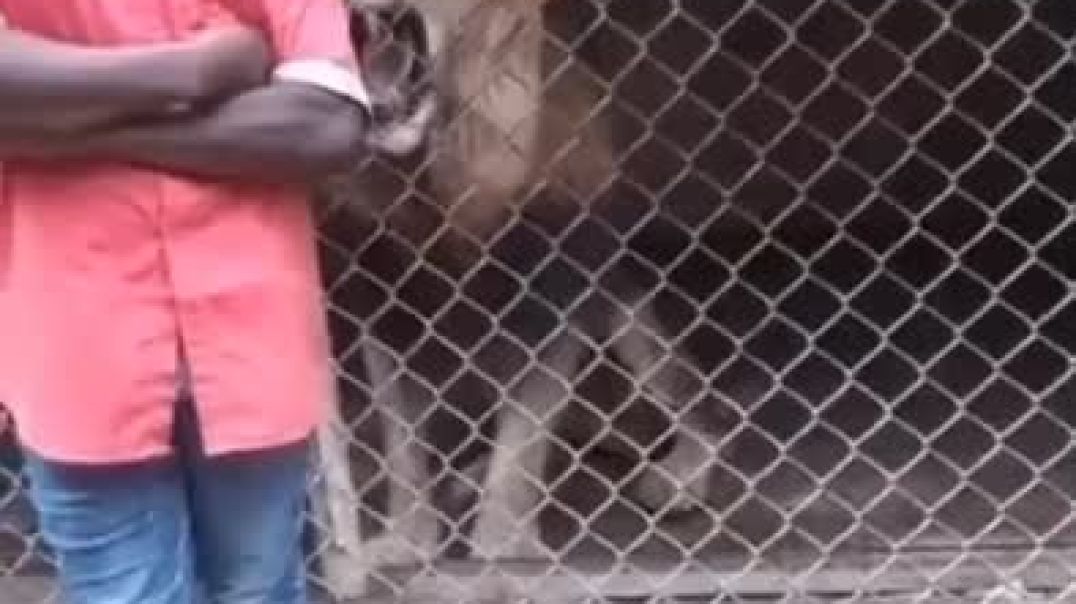
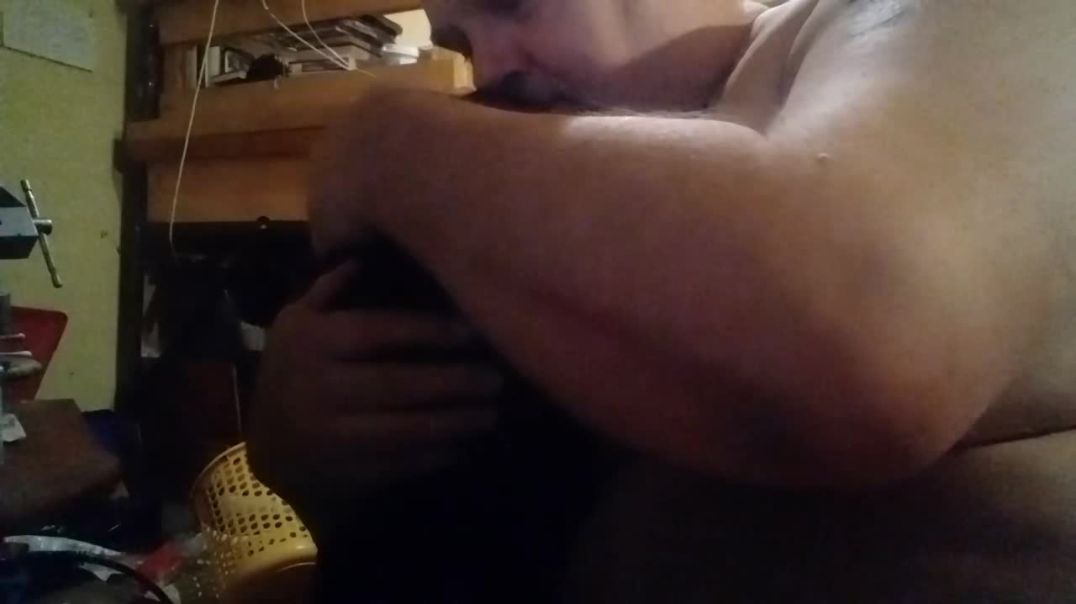







SORT BY-
Top Comments
-
Latest comments
Peanut the Kat, is a Downs Syndrome kind of a Kat...
He is lovely, and has his own way of living a life.
He has his own ways of bonding, which inclide licking the end of my nose and the chewing on it, and the same with all my finger tips, AND he is always launching himself at my tits, to breast feed...
And he is just "repetition / compulsion" about it too - as he is with many other things.
And as much as I have tried to stop and or discourage him, he keeps right on launching himself at my tits - along with my fingers and nose.
I don't think he will ever stop.
So now I have the phrase, "No titty for the kitty - we get a cuddle for the cat", to emphasise that he is all grown up now, as a big man kat, and he no longer needs to breast feed....
It's not a moral issue / bestiality thing - when he does it, it quickly produces an effect of a feeling of being sand papered inside the undeveloped male milk ducts, inside the male tit....
It's very painful.
I suppose the closest thing I could compare it too, is people make fibreglass surfboards, and they rub bees wax over the boards, to promote grip between the wet feet and the board surface, in the ocean. IF you go surfing, bare chested, you get nipple rash, from your nipples rubbing with friction against the waxed surf board.
This is the fully developed breast gland in a woman.
https://www.sciencealert.com/i....mages/2019-04/mammar
3 years ago
3 years ago
3 years ago
3 years ago
3 years ago
3 years ago
Strange but True: Males Can Lactate
Unless you are an Indonesian fruit bat, though, it probably won't happen naturally
By Nikhil Swaminathan on September 6, 2007
Strange but True: Males Can Lactate
Credit: Getty Images
In late 2004 the Internet Movie Database reported that Dustin Hoffman suddenly had the urge to breast-feed. Had the then-67-year-old Hoffman—who brought mainstream culture face to face with autism in Rain Man and went mano a mano with an Ebola-like filovirus in Outbreak—never quite broken character from his 1982 film Tootsie? Nope. He was just really keen to help out with his first grandchild.
Interestingly, he could have possibly lent a helping, er, breast, if he had held the suckling newborn to his nipples for a couple weeks although he could also have tried starving himself or taking a medication that would affect his brain's pituitary gland.
There have been countless literary descriptions of men miraculously breast-feeding, from The Talmud to Tolstoy, where, in Anna Karenina, there is a short anecdote of a baby suckling an Englishman for sustenance while on board a ship. The little anthropological evidence documented suggests it is possible. In the 1896 compendium Anomalies and Curiosities of Medicine, George Gould and Walter Pyle catalogue several instances of male nursing being observed. Among them was a South American man, observed by Prussian naturalist Alexander von Humboldt, who subbed as wet nurse after his wife fell ill as well as male missionaries in Brazil that were the sole milk supply for their children because their wives had shriveled breasts. More recently, Agence France-Presse reported a short piece in 2002 on a 38-year-old man in Sri Lanka who nursed his two daughters through their infancy after his wife died during the birth of her second child.
In her 1978 book The Tender Gift: Breastfeeding, medical anthropologist Dana Raphael claimed that men could induce lactation simply by stimulating their nipples. The eminent endocrinologist Robert Greenblatt of the Medical College of Georgia concurred. But Jack Newman, a Toronto-based doctor and breast-feeding expert, insists that in order to produce milk, a hormone spike must occur. "That Tolstoy quote suggests that the father just put the baby to the breast and he would produce milk; I think that's pretty unlikely," he says. "It could be that you have this man with this pituitary tumor and he produces milk once the baby starts suckling."
Newman explains that medical disruptions involving prolactin, the hormone necessary to produce milk, have resulted in spontaneous lactation. Thorazine, a popular antipsychotic used in the mid-20th century, impacted the pituitary gland—the pea-size endocrine gland located near the base of the brain—often causing it to overproduce prolactin. If prolactin levels remained high, milk could follow. According to Newman, lactation is listed as a possible side effect of the heart medication digoxin. A pituitary tumor could also induce milk production: "It would be the same reason—increased prolactin levels—the one case drug-induced, in the other due to a tumor or some other sort of neurological problem."
In a 1995 article for Discover titled "Father's Milk," Pulitzer Prize-winning author and one-time physiologist Jared Diamond reconciles the nipple stimulation and hormone quandary, pointing out that such stimulation can release prolactin. He also notes that starvation—which inhibits the functioning of hormone-producing glands as well as the hormone-absorbing liver—can cause spontaneous lactation, as observed in survivors of Nazi concentration camps and Japanese POW camps in World War II. "The glands recover much faster than the liver when normal nutrition is resumed," he writes, "so hormone levels soar unchecked."
Males of many different mammalian species have the potential to lactate, although only one, the Dayak fruit bat of Southeast Asia, does so spontaneously. Diamond points out, however, that with the societal norm of fathers helping to rear their young, male milk production could actually be to our advantage, especially with all the career women trying to balance the demands of job and family. Why else would men still have nipples?
"Up until a certain age, boys and girls, as fetuses, are indistinguishable, really, so women retain some remnants of the vas deferens, which is the canal that sperm follows," Newman answers. "If you have no Y chromosome, then certain hormones are released that say, 'Okay, we'll set up this child's breast tissue to develop at puberty so that she will be able to produce milk.' Men didn't [secrete those hormones], so we don't usually have breast tissue."
"Actually a significant number of boys around the age of puberty do develop breasts," he continues, "so the tissue is there, but it regresses." In short, men may not have full-fledged breasts but they certainly can lactate, under extreme circumstances.
3 years ago
3 years ago
https://www.discovermagazine.c....om/mind/fathers-milk we men are expected to share in the care of our children. We have no excuse not to, of course, since we are perfectly capable of doing practically anything our wives can do. And so, when my twin sons were born, I duly learned to change diapers, clean up vomit, and perform the other tasks that come with parenthood. The one thing I was excused from doing was nursing my infants. It was a visibly tiring task for my wife, and friends kidded me that I should get hormone injections and share the burden. Yet cruel biological facts appear to confront those who would bring sexual equality to this last bastion of female privilege or male cop-out. Males--and not just human males, mind you--seemingly lack the anatomic equipment, the priming experience of pregnancy, and the hormones necessary for lactation. Until last year, males of not a single one of the world’s 4,500 mammal species were suspected of lactating under normal conditions. Brace yourselves, guys. Science is demolishing your last excuses. We’ve known for some time that many male mammals, including some men, can undergo breast development and lactate under special conditions. We’ve also known that many otherwise perfectly normal male domesticated goats, with normal testes and the proven ability to inseminate females, surprise their owners (and probably themselves) by spontaneously growing udders and secreting milk. Now we know that at least one wild mammal engages in similarly odd behavior: just last year, spontaneous male lactation was reported in the Dayak fruit bat of Malaysia. Ten adult males, captured alive, proved to have mammary glands distended with milk. Lactation, then, lies within a male mammal’s physiological reach. Yet it’s not part of our normal human repertoire, nor the normal repertoire of any other mammalian males--except, intriguingly, for the Dayak fruit bat. Why, then, since natural selection evidently could have made us men lactate, didn’t it? Might it reprogram us in the future? Might male lactation, now a fascinating theoretical problem at the interface of physiology and evolutionary biology, soon advance from the realm of theory into practice? Let’s start with the facts. Of the 23 pairs of human chromosomes, 22, and the genes that they carry, are the same in men as in women. Only the twenty-third, the sex chromosome, differs between men and women: women have two matched copies termed X chromosomes, while men have one X chromosome plus a smaller Y chromosome. The genes on chromosome 23, acting in concert with genes on other chromosomes, ultimately determine all differences between our sexes. Those differences, of course, include not only the possession of ovaries as opposed to testes but also the postadolescent differences in beards, pitch of voice, and breast development. Blocking a single gene--say, one that normally codes for the cell receptor that binds testosterone--can make someone who genetically is otherwise a normal male develop breasts and a vagina. The actual effects of testosterone and its chemical derivatives, called androgens, vary with age, organ, and species. Animals differ greatly in how the sexes develop. Adult male gorillas, for example, are much larger than females (weighing roughly twice as much), have a differently shaped head, and a silver-haired back. Human males also differ from females, though much less obviously, in being slightly heavier (by 20 percent on average), more muscular, and bearded. But males and females of some gibbon species look so similar that you couldn’t distinguish them unless they permitted you to examine their genitals. Both sexes of all mammals have mammary glands. While the glands are generally less well developed and nonfunctional in males, the degree of underdevelopment varies among species. At one extreme, in mice and rats, the mammary tissue never forms ducts or a nipple and remains invisible from the outside. At the opposite extreme, in dogs and primates (including humans), the gland does form ducts and a nipple in both males and females and scarcely differs between the sexes before puberty. During adolescence the visible differences between mammalian sexes increase under the influence of a mix of hormones from the gonads, adrenal glands, and pituitary gland. Among the hormonally caused changes is a growth spurt in the mammary glands in females. Hormones released in pregnant females produce a further mammary growth spurt and start milk production, which is then stimulated by nursing. In humans, milk production is especially under the control of the hormone prolactin. (In cows the responsible hormone is somatotropin, alias growth hormone, the substance behind the current debate over the hormonal stimulation of milk cows.) It should be emphasized that male and female differences in hormones aren’t absolute but a matter of degree: one sex may have higher concentrations of a certain hormone and more receptors for it. In particular, becoming pregnant is not the only way to acquire the hormones necessary for breast growth and milk production. Direct injection of estrogen or progesterone (hormones normally released during pregnancy) has triggered breast growth and milk production in virgin cows--and also in male goats, male guinea pigs, and a steer. Granted, the hormonally treated steer produced much less milk than a virgin cow, and you shouldn’t count on seeing steer’s milk in the supermarket anytime soon. But that’s not surprising, since the steer had previously limited his options: he hadn’t developed an udder to accommodate all the mammary gland tissue that the hormonally treated cows could accommodate. There are numerous conditions under which injected or topically applied hormones have produced inappropriate breast development and milk secretion in humans, both in men and in nonpregnant or non-nursing women. In one study, male and female cancer patients who were being treated with estrogen proceeded to secrete milk when injected with prolactin. Lactation has likewise been observed in people taking tranquilizers that influence the hypothalamus (which controls the pituitary gland, the source of prolactin), in people recovering from surgery that somehow stimulated the nerves related to the suckling reflex, and in women on prolonged courses of estrogen and progesterone birth-control pills. All these cases involved medical intervention, but it is not always necessary. Mere repeated mechanical stimulation of the nipples suffices in some cases, since mechanical stimulation is a natural way of releasing hormones. For instance, sexually mature but virgin female marsupials can regularly be stimulated to lactate just by placing another mother’s young on their teats. Milking of virgin female goats similarly triggers them to lactate. That principle might be transferable to men, since manual stimulation of the nipples causes a prolactin surge in men as well as in women. For this phenomenon, my favorite human example is a letter to Dear Abby from an unmarried woman about to adopt a newborn. The writer longed to nurse the infant and asked Abby whether taking hormones would help her to do so. Abby’s reply was Preposterous, you’ll only make yourself sprout hair! Several indignant readers then wrote in to describe cases in which women succeeded in nursing an infant by repeatedly placing it at the breast. Experience suggests that most adoptive mothers begin producing some milk within three or four weeks. The reported examples included grandmothers up to the age of 71, as well as Ruth’s mother-in-law, Naomi, in the Bible. Breast development occurs commonly, and spontaneous lactation occasionally, in men under conditions of starvation. Thousands of cases were recorded among prisoners of war released from concentration camps after World War II; one observer noted 500 cases among survivors of one Japanese POW camp alone. The most likely explanation is that starvation inhibits not only the glands that produce hormones, but also the liver, which destroys those hormones. The glands recover much faster than the liver when normal nutrition is resumed, so hormone levels soar unchecked. Evidently, then, evolution just didn’t design us men to utilize our potential to lactate, even though we have the necessary anatomic equipment, physiological potential, and hormone receptors. The question is, why not? To answer this evolutionary riddle, let’s distance ourselves from our warped human perspective. We’re exceptional animals in that human males and females stay together after mating and are both involved in rearing the resulting child. No one could claim that men’s and women’s parental contributions are equal in most marriages and societies. But most fathers contribute at least something to their children, even if it’s just food or defense or land rights. We take this so much for granted that it’s written into our child-support laws. Alas, we’re aberrations in the animal world. Most male mammals, like orangutans and giraffes, have no involvement with their offspring, and have no further involvement with their offspring’s mother after inseminating her, because they are too busy seeking other females to inseminate. Male animals in general, not just male mammals, provide much less parental care--if any--than do females. Yet there are quite a few exceptions to this chauvinist pattern. In some bird species, such as phalaropes and spotted sandpipers, it’s the male that does the work of incubating the eggs and rearing the chicks, while the female goes in search of another male to inseminate her and to rear her next clutch. Males of some fish species, like sea horses and sticklebacks, and some amphibians, like midwife toads, care for the eggs in a nest or in their mouth, pouch, or back. How can we explain simultaneously this general pattern of female parental care and also its numerous exceptions? The answer comes from the realization that genes for behavior, like genes for teeth, are subject to natural selection. Behavior that helps individuals of one species pass on their genes won’t necessarily be helpful in another species. In the present context, the behavior we’re concerned with is that practiced by a male and a female that have just copulated to produce a fertilized egg. At this point they face a choice: Should they both leave the egg to fend for itself and set to work on producing another fertilized egg, either with each other or with different partners? On the one hand, a time-out from sex for the purposes of parental care might improve the chances of that first egg’s surviving. On the other hand, if that egg has a 1-in-10 chance of surviving even with no parental care, and if the time they’d devote to tending it would let them produce 1,000 more fertilized eggs, they’d be best off leaving that first egg to fend for itself and going on to produce more fertilized eggs. The latter is the actual behavior that natural selection has programmed into the genes of most animal species. However, in a significant minority of species, including all mammals and almost all birds, a newly born offspring has absolutely zero chance of surviving without parental care. At least one parent must tend it. But will both parents fulfill the obligation, or will one foist the job onto the other while the foister goes off in search of a new sex partner and more fertilized eggs? Sadly, what’s in the mother’s best genetic interests isn’t necessarily what’s best for the father. There is a built-in potential conflict of interest between mothers and fathers--a conclusion that all too many humans don’t need scientists to reveal to them. Generally, mothers have a much bigger investment in embryos than do fathers. To start with, eggs are much bigger than sperm, so even the newly fertilized egg represents a bigger investment of nutrients and energy by the mother. Thereafter, in mammals, birds, and many other animals, the egg must undergo a long period of development within the mother’s body before the resulting offspring can hatch or be born. By the end of a nine-month pregnancy, a human mother has made a colossal investment of time and energy. That disparity in investment is one of the two main factors in the equation by which natural selection determines which parent, if either, should provide more care for the young. The other main factor is confidence of parenthood. If you’re going to invest time, effort, and nutrients in nurturing some embryo, you’d better make damn sure first that it’s your own embryo. If it turns out to be somebody else’s, you’ve lost the evolutionary race. You’ll have knocked yourself out in order to pass on a rival’s genes. For women and other female mammals, doubt about maternity never arises. Into your body, containing your eggs, go sperm. Out of your body comes a baby. There’s no way that the baby could have been switched with some other mother’s baby inside you. It’s a safe evolutionary bet for you, the assumed mother, to care for that baby. But male mammals can’t have a corresponding confidence in their paternity. Yes, the male knows that his sperm went into some female’s body. But how does the male know what other males the female copulated with when he wasn’t looking? How does he know whether his sperm or some other male’s sperm was the one that ultimately fertilized the female’s egg? In the face of this inevitable uncertainty, the evolutionary conclusion reached by most male mammals is to walk off the job immediately after copulation, seek more females to impregnate, and leave those females to rear their kids alone-- hoping that one or more of these females will actually have been impregnated by him and will succeed in rearing his offspring unassisted. Any form of male parental care--such as male lactation--would be a bad evolutionary gamble. But, as we all know, some animals are exceptions to this pattern of male desertion. These exceptions are of two main types. The first is found among species in which eggs are fertilized outside the female’s body. The female ejects her not-yet-fertilized eggs; the male, hovering close by, spreads his sperm on the eggs; he immediately scoops up the eggs, before any other males have a chance to cloud the picture with their own sperm; then he proceeds to care for the eggs, completely confident in his own paternity. This is the evolutionary logic that programs some male fish and frogs to play the role of sole parent after fertilization. The other exception occurs in species that, like us, practice internal fertilization but find it hard or impossible to have their offspring reared by a single unassisted parent. A second parent is required to gather food, or to tend the young while the other parent is off gathering food, or to defend a territory, or to teach the young. That’s the situation we humans know so well. Single parenthood is hard enough, even in these days of supermarket shopping and baby-sitters for hire. In ancient hunter-gatherer days, a child who lost either its mother or its father faced a significantly reduced chance of survival. Thus the father as well as the mother found it a matter of genetic self-interest to care for the child. The result is our social system of nominally monogamous married couples, or occasionally of harems of women committed to one affluent man. All the man has to do to justify his investment to himself is make sure, somehow, that his woman or women aren’t fooling around with someone else when he’s not looking. The same considerations apply to gorillas, gibbons, and the other minority mammals practicing male parental care. That familiar arrangement can still lead to conflicts between the mother’s and father’s interests, arising from their unequal investments before birth. Even among those mammal species providing paternal care, males still try to see how little care they can get away with and yet have the offspring survive. Males also still try to impregnate other females, which in a paired-off society means other males’ spouses, leaving the unfortunate cuckolded male to care unknowingly for the cuckolder’s offspring. Of course, such males then become justifiably paranoid about their own spouses’ behavior. Those built-in tensions in mammalian species with male parental care are the familiar causes of much human misery. In light of these basic facts of life, then, let’s return to our question: Why hasn’t natural selection programmed male mammals, like females, to produce milk for their young? Clearly the question never arises for 90 percent of all mammal species--the ones in which the offspring will survive with care by the mother alone, and males can get away with zero postcopulatory contribution. Not only do those males not have to lactate, they don’t have to gather food, defend territory, defend or teach their offspring, or do anything else for them. The male’s crass genetic interests are best served by chasing other females to impregnate. A noble male carrying a mutation to nurse his offspring (or to care for them in any other way) would quickly be outbred by selfish normal males who didn’t lactate and who could sire more offspring. It’s only for the 10 percent of mammal species in which male parental care is necessary that the question of male lactation deserves consideration. Those minority species include lions, wolves, gibbons--and humans. But even in those species, lactation isn’t necessarily the most valuable form that the father’s contribution could take. What a big lion really must do is to drive off hyenas and other big lions bent on killing his cubs. He should be out patrolling his territory, not sitting home nursing the cubs (which the smaller lioness is perfectly capable of doing). The wolf father may make his most useful contribution to his offspring by leaving the den to hunt, bringing back meat to the wolf mother, and letting her turn the meat into milk. The gibbon father may contribute best by looking out for pythons and eagles that might grab his offspring and by vigilantly expelling other gibbons from fruit trees in which his own spouse and offspring are feeding. All those excuses for male nonlactation still leave open the possibility that there could be some other mammal species in which male lactation would be advantageous to the male and his offspring. But even if there is such a species--say, the Dayak fruit bat, about which we know very little--and even though male lactation is physiologically possible, there’s still no doubt that female mammals have had an enormous head start in perfecting their physiological potential for lactation. Females, but not males, have been undergoing natural selection for milk production for tens of millions of years. In all the species I cited to demonstrate that male lactation is physiologically possible--humans, cows, goats, dogs, guinea pigs, and Dayak fruit bats too--lactating males still produce much less milk than do females. That leaves us to speculate whether somewhere out there, undiscovered, some mammal species lurks whose males and females share the burden of lactation equally--or which might evolve that sharing in the future. One can easily specify the conditions favoring the evolution of normal male lactation. Those conditions include a litter of infants that constitute a big burden to nourish, monogamous male and female pairs, high confidence of males in their paternity, and hormonal preparation of fathers for eventual lactation, while their mate is still pregnant. The mammal that some of those conditions already best describe is--we humans. With modern fertility drugs and high-tech fertility methods, births of twins and triplets are becoming more and more frequent. Nursing twins is a big energy drain, as I remember well from watching how fast the food disappeared from our refrigerator while my wife was nursing our twin sons. The daily energy budget of a mother of twins approaches that of a soldier in boot camp. Despite all our jokes about infidelity, genetic testing shows the great majority of American and European babies tested to have actually been sired by the mother’s husband. In theory, genetic testing of fetuses permits a man to be 100 percent sure that he really sired the fetus within his pregnant wife. All those features make the human species a leading candidate for male lactation. Soon, some combination of manual nipple stimulation and hormone injections may develop the confident expectant father’s latent potential to make milk. While I missed the boat myself, it wouldn’t surprise me if some of my younger male colleagues, and surely men of my sons’ generation, exploit their opportunity to nurse their children. The remaining obstacle will then no longer be physiological but psychological: Will all you guys be able to get over your hang-up that breast-feeding is a woman’s job?
3 years ago
3 years ago
3 years ago
3 years ago
3 years ago